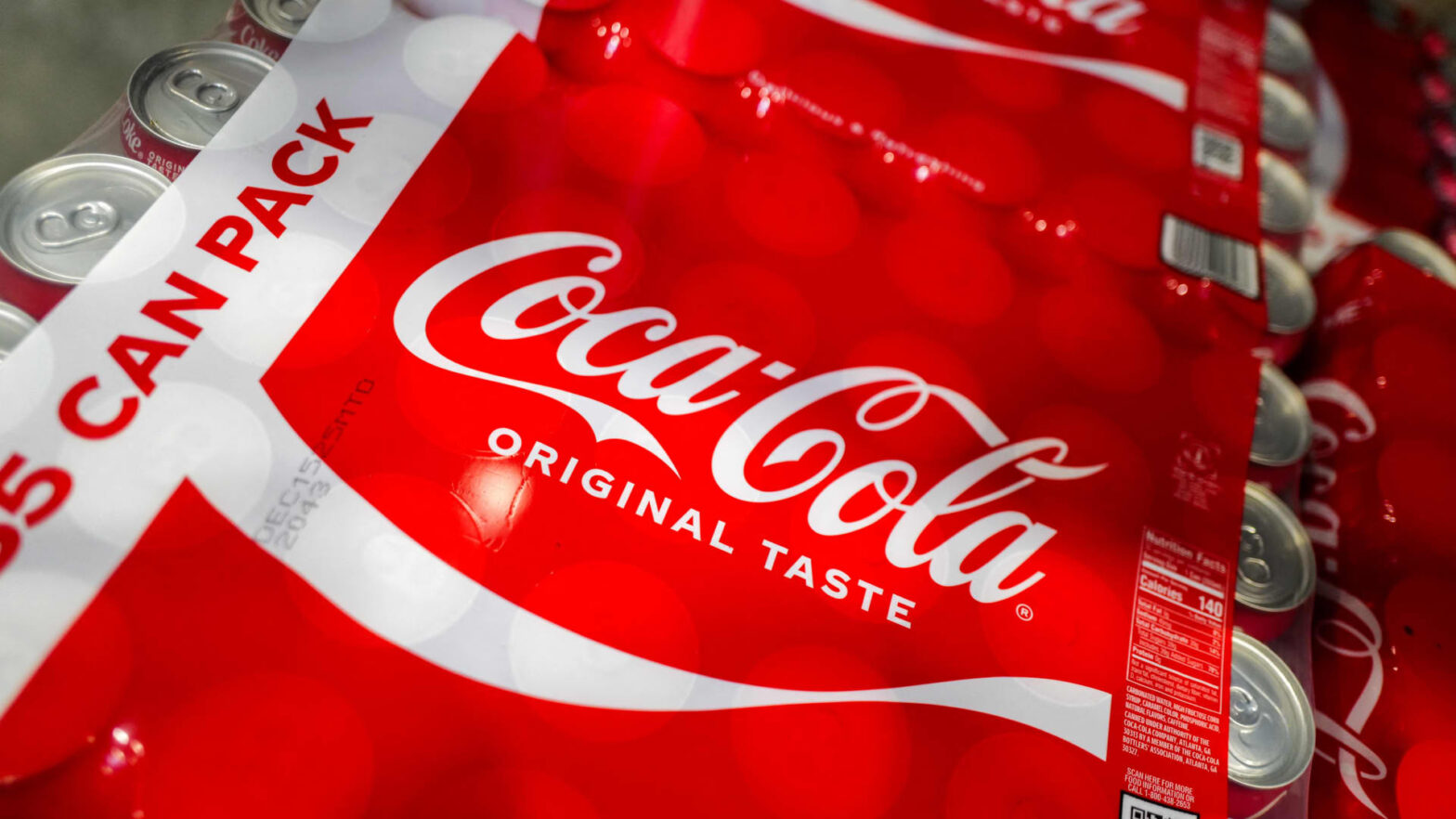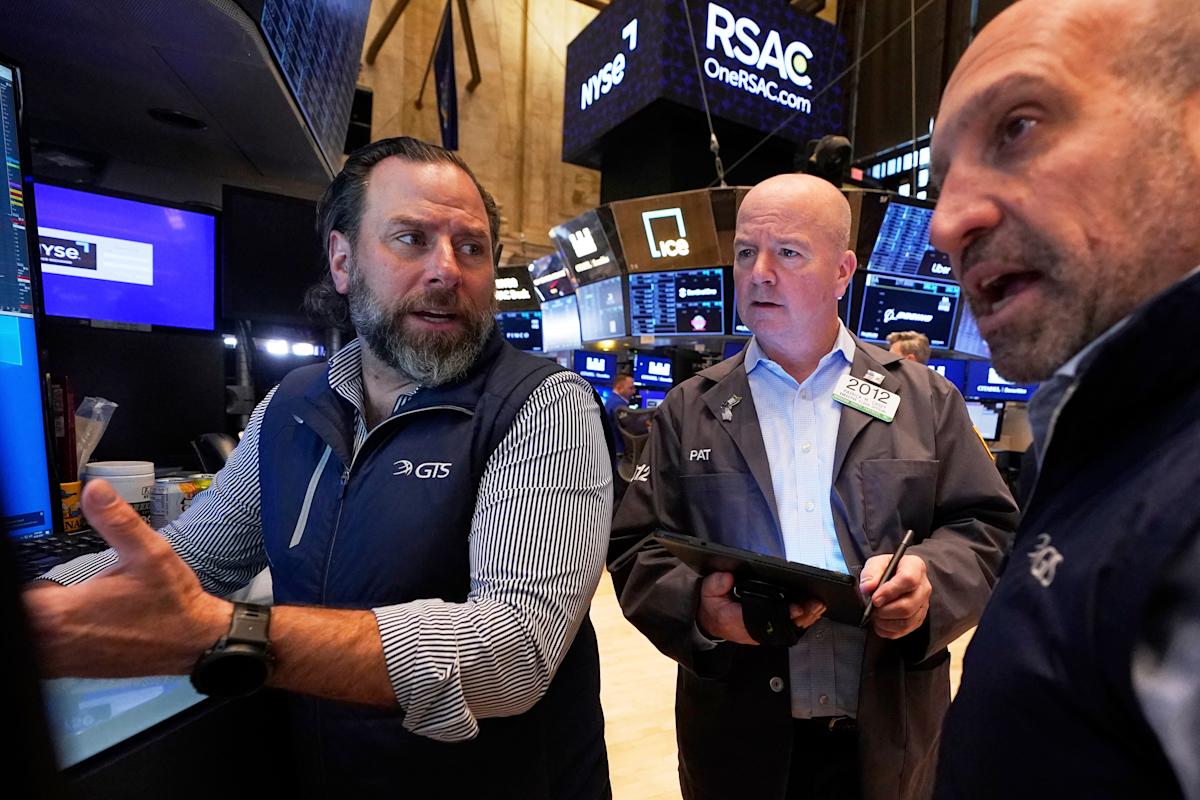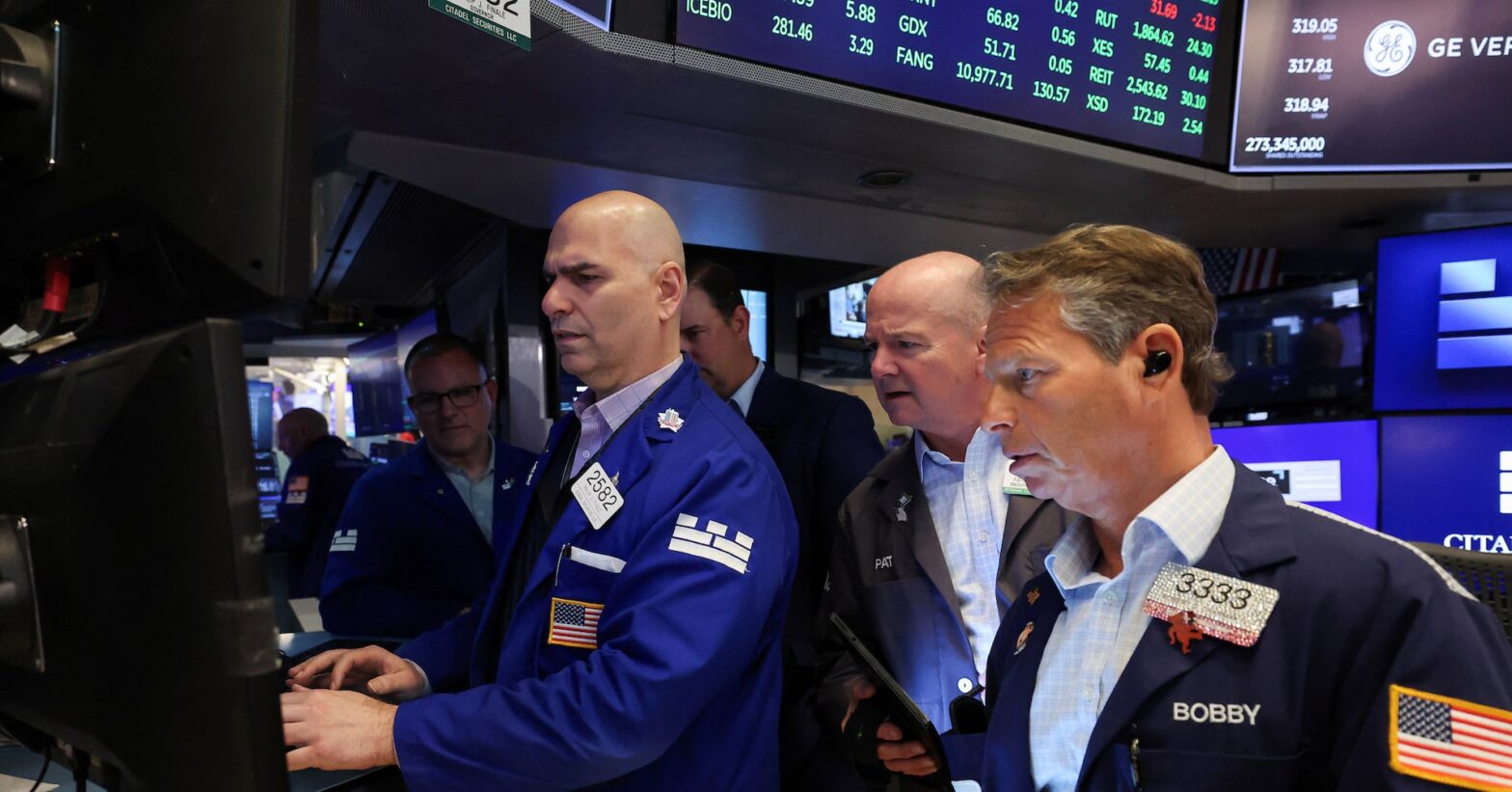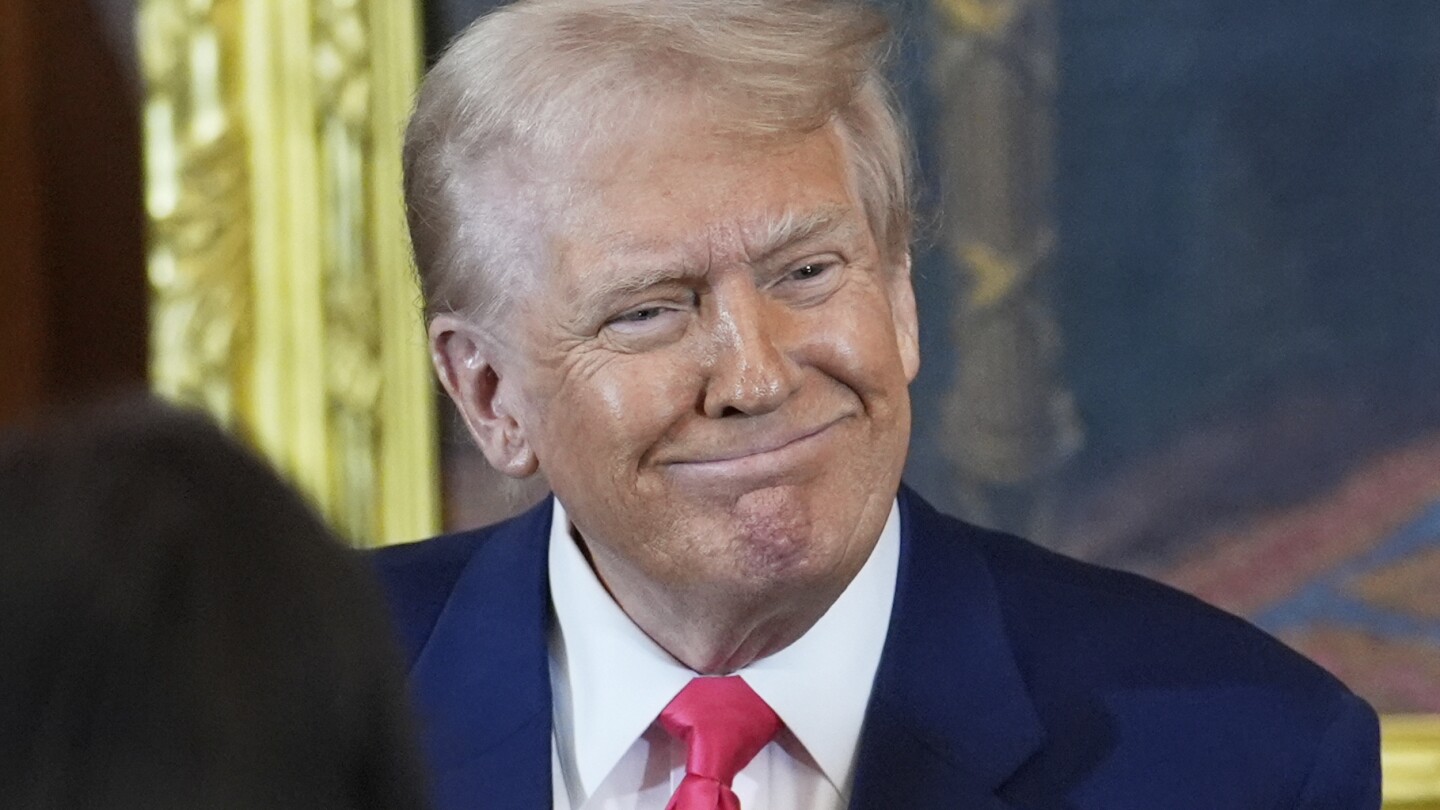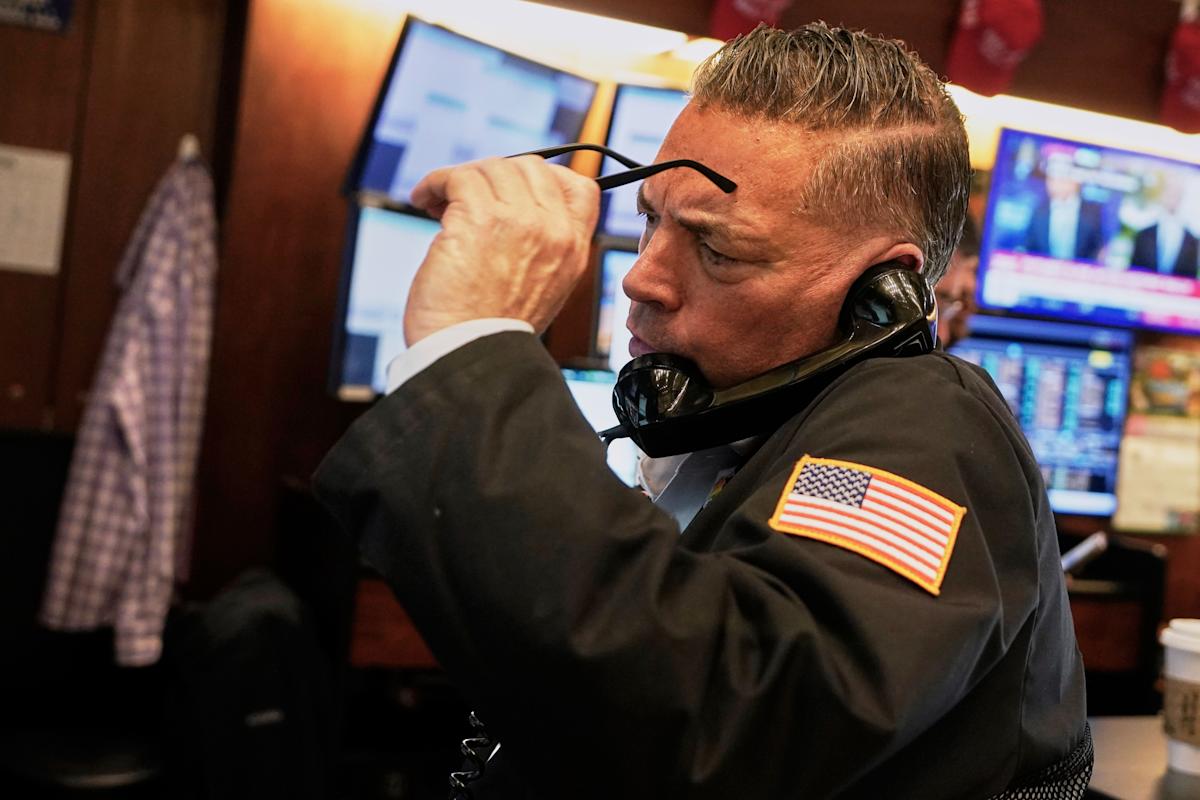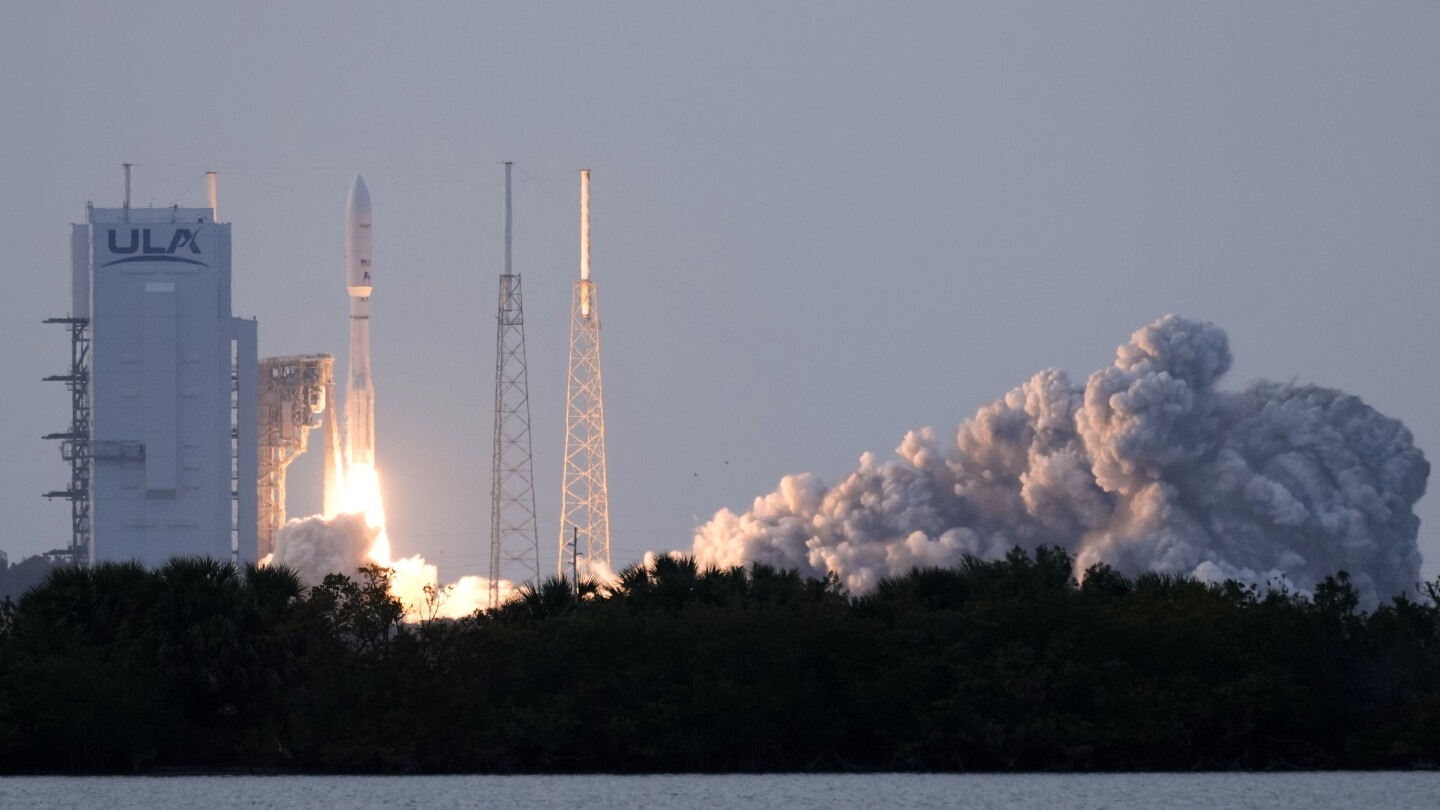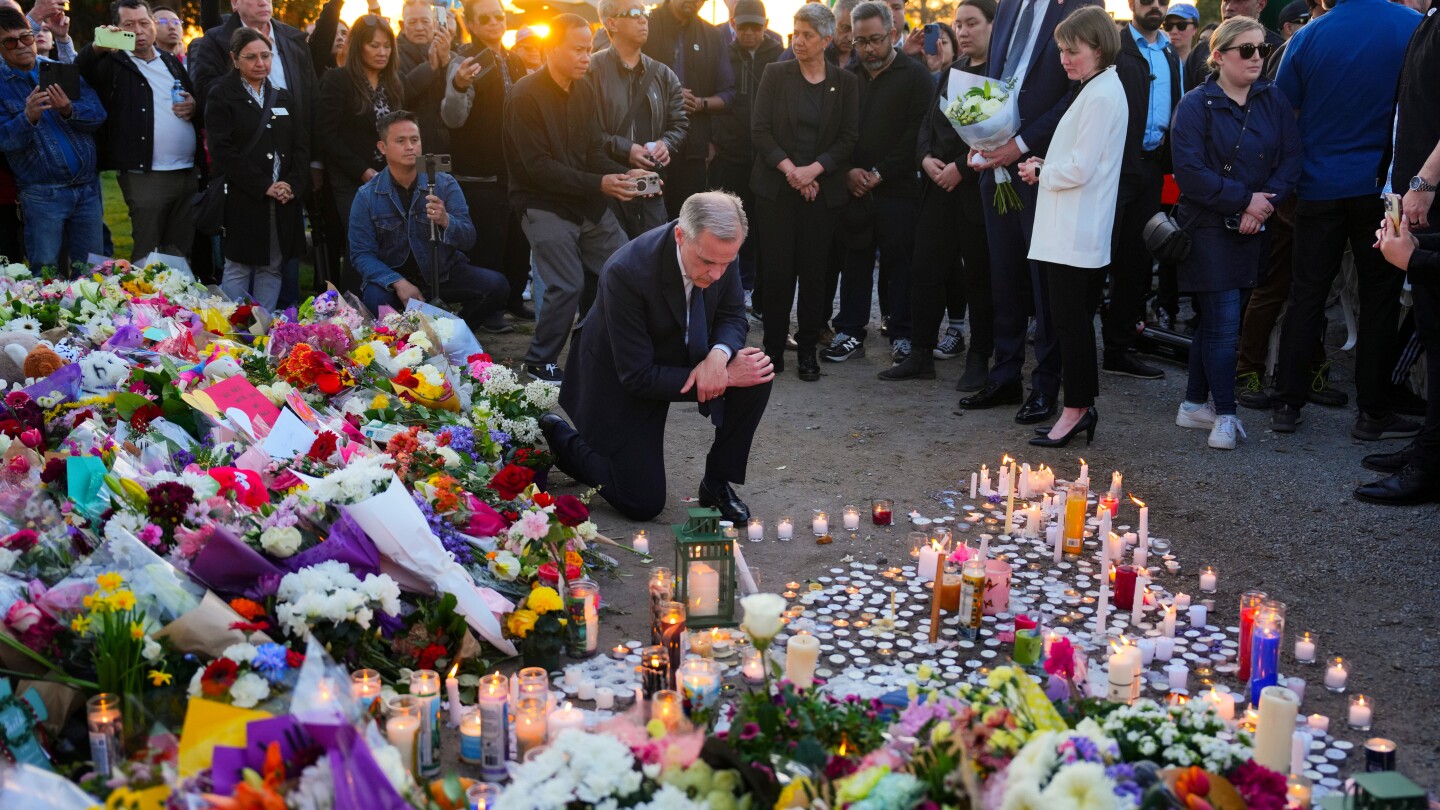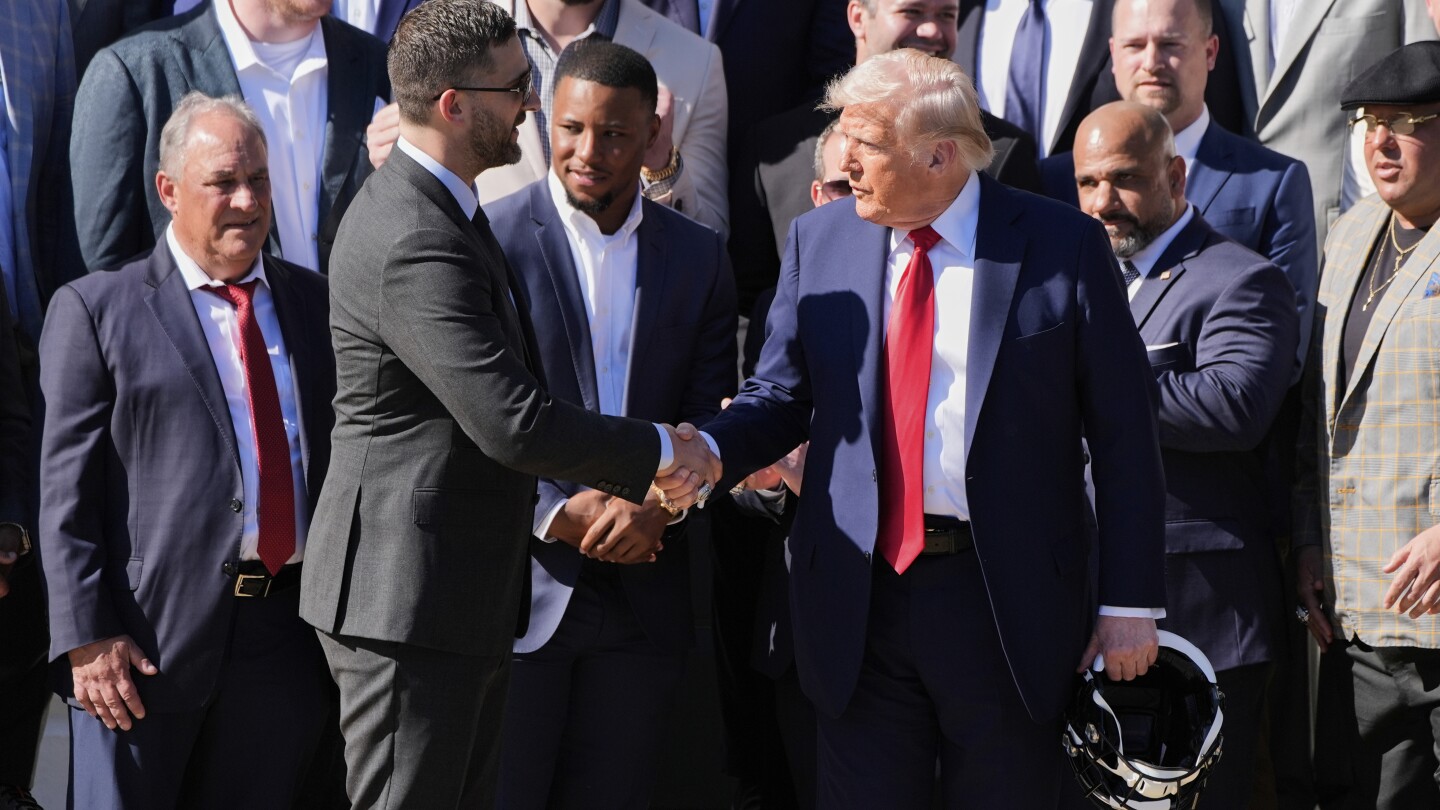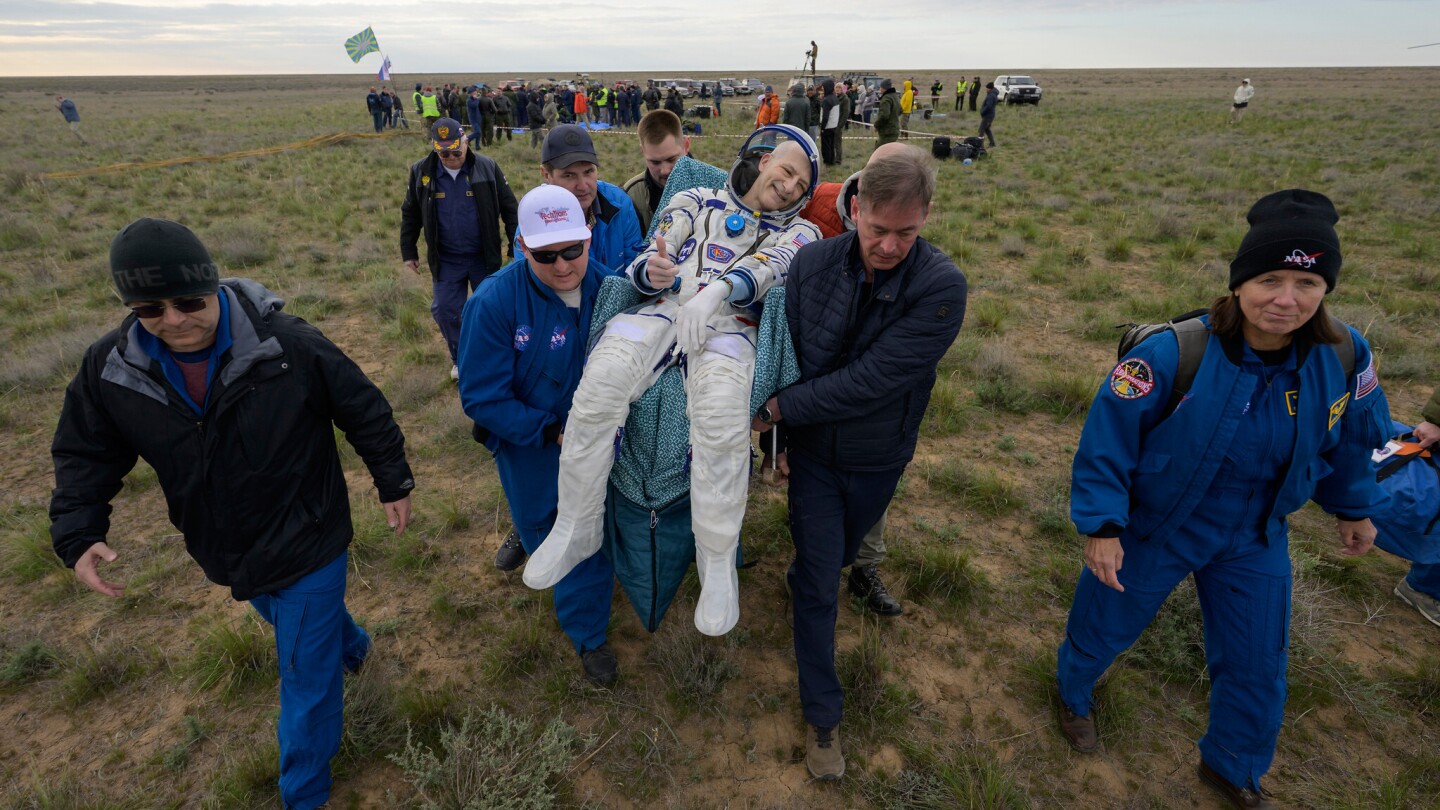Unlock stock picks and a broker-level newsfeed that powers Wall Street.
Updated 2 min read
In This Article:
US stocks plunged before the bell on Monday, setting Wall Street up for another bruising day as markets braced for more fallout from President Trump’s fast-moving tariff policy.
Futures tied to the S&P 500 (ES=F) plummeted 4.9%, while those on the tech-heavy Nasdaq 100 (NQ=F) sold off 5.3%. Dow Jones Industrial Average futures (YM=F) sank 4.3%, or around 1,600 points. Meanwhile, oil prices dropped around 4%, tumbling below $60 per barrel for the first time since 2021.
US stocks are set to extend a two-day sell-off of epic proportions that saw the Nasdaq Composite (^IXIC) enter a bear market on Friday, as Wall Street shed over $5 trillion in value to post its worst week since 2020.
CME – Delayed Quote USD
As of 4:12:38 AM EDT. Market Open.
ES=F NQ=F YM=F
Meanwhile, markets in Asia and Europe also retreated sharply on Monday as investors became increasingly concerned that Trump might not negotiate on his sweeping tariff hikes, risking widespread economic slowdown.
The president over the weekend showed no signs of backing down in the face of Wall Street panic and international pushback, saying late Sunday that markets may have to “take medicine.” He added that he was not intentionally trying to crash stocks.
The China has already announced retaliatory tariffs, and the EU is readying countermeasures. The US’s new baseline 10% duties on most trading partners went into effect over the weekend, and additional tariffs on so-called “bad actors” are set to be implemented from Wednesday.
Read more: Live updates on Trump tariffs fallout
JPMorgan on Friday became the first big US bank to project a recession later this year, as forecasters have in just days scrambled projections of a solid growth trajectory for the US economy.
But administration officials defended Trump’s plans during appearances on Sunday talk shows. Treasury Secretary Scott Bessent rejected the assertion that the tariffs could send the US economy into recession.
Bessent, along with top economic adviser Kevin Hassett, claimed that more than 50 countries have reached out to begin negotiations, raising questions about logistical challenges with the tariffs set to go in place this week. Commerce Secretary Howard Lutnick said the tariffs would “definitely going to stay in place for days and weeks.”
LIVE 8 updates
-
JPMorgan becomes the first Wall Street bank to forecast a US recession following Trump’s tariffs
JPMorgan believes the US economy will enter a recession in the back half of 2025 as the impact of President Trump tariffs takes hold in the economy.
The firm’s chief US economist Michael Feroli sees a two-quarter recession occurring in the back half of 2025 as GDP contracts by 1% in the third quarter of the year and by 0.5% in the fourth quarter. For the full-year 2025, Feroli’s team projects GDP will fall by 0.3%.
“We now expect real GDP [gross domestic product] to contract under the weight of the tariffs,” Feroli wrote in a note to clients on Friday night.
Feroli added that a “recession in economic activity” will push the unemployment rate up to 5.3%. New data from the Bureau of Labor Statistics released on Friday showed the unemployment rate stood at 4.2% in March. While other economists have noted the risks to recession are rising, JPMorgan marks the first major Wall Street research team to forecast a recession as Trump’s tariffs weigh on economic growth.
“The pinch from higher prices that we expect in coming months may hit harder than in the post-pandemic inflation spike, as nominal income growth has been moderating recently, as opposed to accelerating in the earlier episode,” Feroli wrote. “Moreover, in an environment of heightened uncertainty consumers may be reluctant to dip too far into savings to finance spending growth.”
-

Bill Ackman warns of ‘economic nuclear winter’ if Trump doesn’t act on Monday
Some of President Trump’s prominent backers in the business community are sounding the alarm on his rollout of reciprocal tariffs and the resulting market fallout.
Outspoken billionaire investor Bill Ackman, who endorsed the president last July following the assassination attempt on Trump, said in a lengthy post on X late Sunday that, barring Trump calling a “time out” on his tariffs plans, we could be headed for an “economic nuclear winter.”
“The President has an opportunity on Monday to call a time out and have the time to execute on fixing an unfair tariff system,” Ackman wrote.
“Alternatively, we are heading for a self-induced, economic nuclear winter, and we should start hunkering down.
“May cooler heads prevail.”
In his post, Ackman argued the US is “100% behind the president on fixing a global system of tariffs that has disadvantaged the country.”
“But,” Ackman added, “business is a confidence game and confidence depends on trust.”
On Sunday evening, stock futures were pointing to a third day of sharp losses after the S&P 500 (^GSPC) fell over 10% across Thursday and Friday’s trading sessions, while the Nasdaq (^IXIC) entered a bear market.
Trump’s reciprocal tariff announcements on Wednesday, dubbed “Liberation Day” by the White House, surprised investors and exceeded most Wall Street forecasts. Initial estimates put the combined tariff rate on all US imports well north of 20%, which would be the highest in over a century.
Wall Street strategists have slashed their forecasts for the stock market in response to Trump’s tariff plan and at least one firm has called for the US to enter recession this year as a result.
Ackman said Trump’s rollout of these tariffs has set in motion a “process of destroying confidence in our country as a trading partner, as a place to do business, and as a market to invest capital.”
Instead, Ackman is calling on Trump to institute a 90-day time out to begin negotiations on “unfair asymmetric tariff deals, and induce trillions of dollars of new investment in our country.”
“If, on the other hand, on April 9th we launch economic nuclear war on every country in the world,” Ackman wrote, “business investment will grind to a halt, consumers will close their wallets and pocket books, and we will severely damage our reputation with the rest of the world that will take years and potentially decades to rehabilitate.
“What CEO and what board of directors will be comfortable making large, long-term, economic commitments in our country in the middle of an economic nuclear war?
“I don’t know of one who will do so?”
-

Trump says sometimes you have to take medicine as markets crater again
Speaking to reporters aboard Air Force One on Sunday, President Trump said sometimes you have to take medicine when asked about the market’s recent sell-off, according to Reuters.
The president added that his policies were not intentionally trying to engineer a market sell-off.
“I don’t want anything to go down, but sometimes you have to take medicine to fix something,” he said.
Trump’s comments come as markets appeared set to begin the week where they left off Friday, with US stock futures down sharply across the board with Nasdaq 100 futures off more than 4% and futures tied to the Dow and S&P 500 both off more than 3.4%.
Last week, the Nasdaq closed in a bear market and the S&P 500’s losses reached 17% from the benchmark index’s record high hit back in February.
This weekend, Trump’s economic surrogates attempted to make clear in media appearances that the president’s shock tariff announcements last week were not a negotiation tactic.
Speaking Sunday evening, the president said no deal on tariffs with China would be forthcoming unless the US’ trade deficit with China was fixed. The US’ trade deficit with China reached $295 billion last year.
Trump added that he has spoken to leaders in Europe and Asia regarding his tariffs unveiled last week.
-
Nikkei plunges 8% as Asian markets face a rough day
In China, investors braced for a tough day as markets reopened after an extended weekend, absorbing the impact of Beijing’s retaliatory tariffs on US goods.
A gauge of Chinese stocks listed in the US plunged 8.9% on Friday, reflecting fears of further trade tensions. The Hang Seng China Enterprises Index, (^HSCE) one of the year’s top performers, has begun a sharp pullback, dropping 9.4%
Meanwhile, the Nikkei 225 (^N225) fell nearly 8%, putting it at its lowest levels since 2023.
China’s swift tariff response, following President Trump’s tariff hike on the country, raised global recession fears. Goldman Sachs downgraded its targets for Chinese equity indices, with the MSCI China (CHH=F) Index target cut to 81 from 85.
-

Oil falls again
TOKYO (Reuters) – Oil prices fell more than 3% on Monday, extending losses from the previous week, on growing concerns that a global trade war could slow the global economy and weaken oil demand, following China’s retaliation against U.S. President Donald Trump’s tariffs.
-
Catch up on the latest tariff developments
Our tariff live blog has been running throughout the weekend, and it has a lot of the context you need to know heading into the trading week.
The key theme is that Trump administration officials struck a defiant tone on the president’s tariff plans. A sampling, per our accounting:
-
Bitcoin plummets, tests pre-election levels
Bitcoin (BTC-USD) plummeted Sunday, putting it on track to test levels from before the election, which sent the token on a rip-roaring rally in the final months of last year.
At last check, the cryptocurrency was trading around $78,600 per token, which puts it just above year-to-date lows.
Ethereum (ETH-USD) saw an even more intense plunge, down around $1,600 per token, its lowest point since late 2023.
-
Stock futures open way down
Futures tied to the major indexes were all down around 4% as trading opened Sunday night:
CME – Delayed Quote USD
As of 4:12:38 AM EDT. Market Open.
ES=F NQ=F YM=F



